Diary of a Bookseller: What to read in these turbulent times?
Bookseller Jo Case recommends some compelling new reads – from an immersive tale exploring race, identity and privilege, to a thoughtful investigation into how we can find and nurture internal happiness.

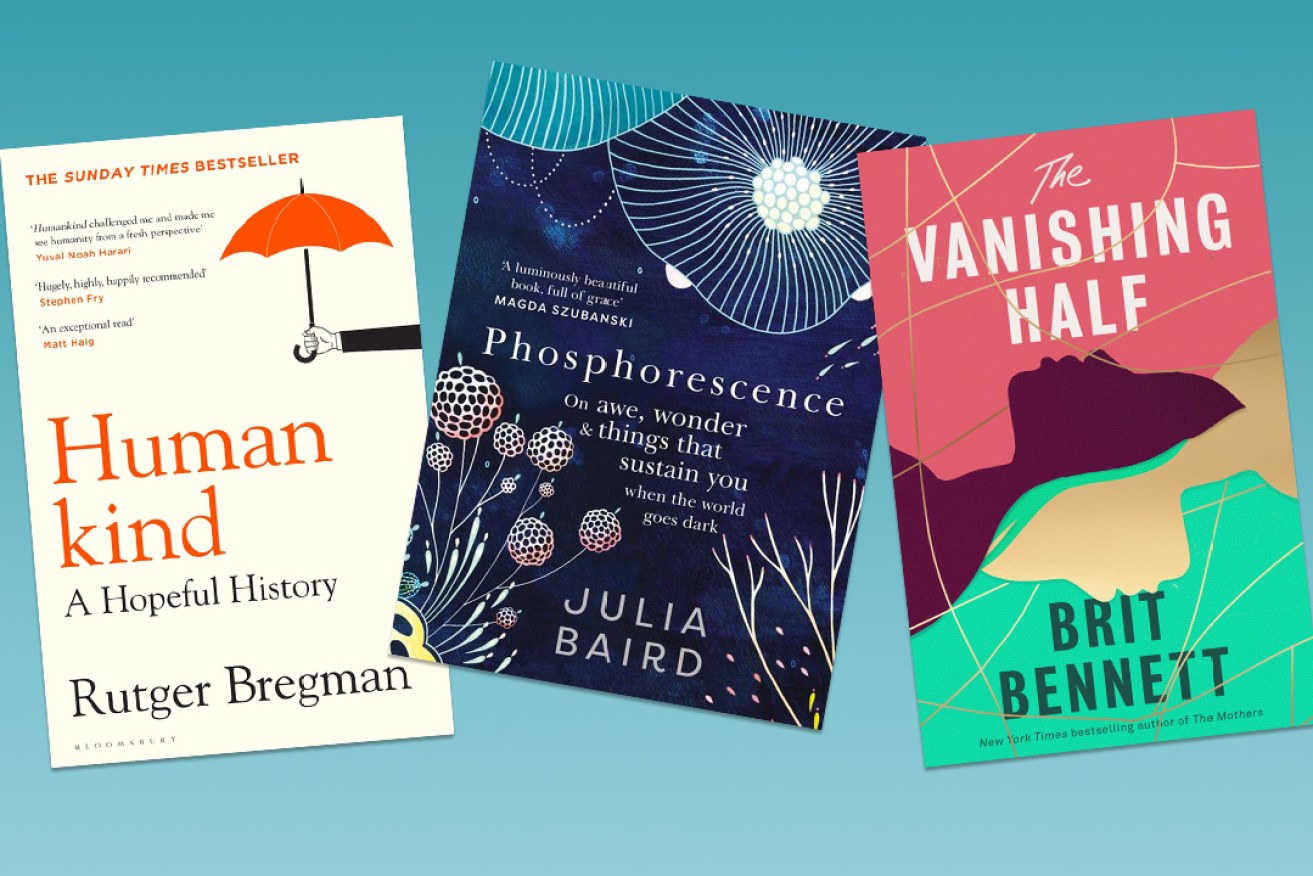
What to read, right now – in these turbulent, uncertain times? Do you seek escape from the present moment, or engagement with it? I continue to hover between the two impulses, but lately, I’ve tended towards the latter.
The last great book I read, Brit Bennett’s second novel, The Vanishing Half (Little Brown, June), explores race, identity and privilege through utterly immersive storytelling. It centres on twins Desiree and Stella, identical in looks but opposite in personality, who grow up in a tiny southern American town, Mallard, founded by their great-great-great grandfather as “a town for men like him, who would never be accepted as white, but refused to be treated like Negroes” and consciously, carefully populated for generations by light-skinned “colored” people.
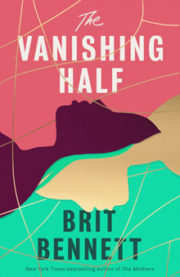 We discover in the opening pages that when the twins were small, they watched their father violently attacked by a cabal of white men (who then followed him to the hospital and killed him there) from their vantage point inside a closet.
We discover in the opening pages that when the twins were small, they watched their father violently attacked by a cabal of white men (who then followed him to the hospital and killed him there) from their vantage point inside a closet.
Aged 16, the twins run away to big-city New Orleans, and within a couple of years, they part ways. Cautious introvert Stella “passes” as white and disappears. Outgoing Desiree marries, but returns to Mallard 10 years later, in 1968, fleeing a violently abusive husband, with her dark-skinned daughter Jude (who predictably suffers in Mallard) in tow.
While Desiree lives with their mother and works at a diner on her return, Stella falls into a life of moneyed privilege that actively excludes blackness. What she’s traded for it, of course, is any sense of true community or authenticity. “Passing” isn’t a one-time trick she pulled off, but a lifelong activity, requiring eternal vigilance and artifice. And at college in LA, Jude finds connection in the queer and trans community, which has its own struggles with identity, passing and acceptance.
Bennett’s characters are beautifully drawn, her world intricately and vividly detailed, and she writes with the ease and confidence of a natural storyteller. Packed with ideas, but driven by character and place, this novel is a thought-provoking joy to read.
In my last column, I mentioned Adelaide author Patrick Allington’s dystopic novel Rise and Shine (Scribe, June), but now that I’ve read it, I want to mention it again – because it really does speak to our precarious-feeling times. It’s set in a post-collapse world ended by maybe nuclear war, maybe biological poison of some kind, or maybe “just the slow grind of excess” (the details are irrelevant).
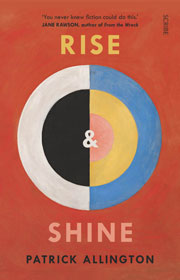 The very few survivors live in the neighbouring city-states of Rise and Shine, under domes that protect them from the atmosphere. Everyone has tumours they live with, common and everyday as a headache. There is no safe food or water. What sustains the population is daily war footage, engineered to be emotionally wrenching, beamed into everyone’s homes twice a day at “mealtime”. The people are literally sustained by their emotional responses … until it no longer works for everyone, and a growing number of citizens begin to starve. A growing Resistance works on a solution that is intensely practical, except for the impossibility of providing it to all.
The very few survivors live in the neighbouring city-states of Rise and Shine, under domes that protect them from the atmosphere. Everyone has tumours they live with, common and everyday as a headache. There is no safe food or water. What sustains the population is daily war footage, engineered to be emotionally wrenching, beamed into everyone’s homes twice a day at “mealtime”. The people are literally sustained by their emotional responses … until it no longer works for everyone, and a growing number of citizens begin to starve. A growing Resistance works on a solution that is intensely practical, except for the impossibility of providing it to all.
Allington’s dystopia echoes Orwell in its vision of a future ruled by screens, surveillance and strict government-controlled messages. Its population, perhaps like us, largely sees what it wants to and avoids what it doesn’t. But Rise and Shine’s vision is unusual in that the government voluptuously lies, but is ultimately benevolent: these leaders want the best for the majority of the population, not power or control for their own sakes.
This novel suggests that yes, the world may be doomed, but on the other hand, humans just might be equipped to work together to survive, in ways we haven’t yet imagined. It’s cynical about the stories we tell and the facades we present, but refreshingly uncynical about human nature itself.
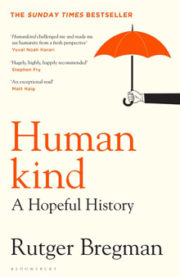 Another book that dares to be hopeful about humans is the new book from the bestselling author of Utopia for Realists, Rutger Bregman. Humankind (Bloomsbury, May) is a radical history of our innate capacity for kindness, over the past 200,000 years of human history.
Another book that dares to be hopeful about humans is the new book from the bestselling author of Utopia for Realists, Rutger Bregman. Humankind (Bloomsbury, May) is a radical history of our innate capacity for kindness, over the past 200,000 years of human history.
Bregman argues that it is realistic, as well as revolutionary, to assume that people are good. When we think the worst of others, he says, it brings out the worst in our politics and economics, too. Believing we can be driven by human kindness and altruism, rather than selfishness and self-interest, can act as the foundation for achieving true change in our society. This book – already an Imprints bestseller – has been compared to Yuval Noah Harari’s Sapiens (and he’s a fan, too).
And finally, Julia Baird’s Phosphorescence (HarperCollins, April), a thoughtful and joy-infused investigation into how we can find and nurture internal happiness, was released just as we moved into COVID-19 isolation. It remains a book I’d recommend to 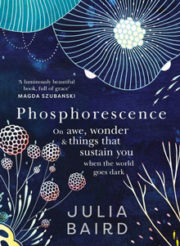 readers looking for an uplifting book written for dark times that focuses on finding a way out of them – Baird was prompted to write it after her experience with cancer.
readers looking for an uplifting book written for dark times that focuses on finding a way out of them – Baird was prompted to write it after her experience with cancer.
Phosphorescence is not a trite self-help book outlining simple steps towards achieving “happiness” as a destination, so much as an inquiry into what truly sustains us, rather than offering fleeting self-actualisation. The answers include communing with nature (Baird writes beautifully about ocean swimming as a personal lifeline for her), spending time away from devices, being kind and altruistic (do you see a pattern forming?) and delving into the concerns of others.
Not that it’s important, but this beautiful little hardback is also a gorgeous object to hold in your hands.
Jo Case is a bookseller at Imprints (107 Hindley Street) and a publisher at Wakefield Press. She writes a regular Diary of a Bookseller column for InDaily.




